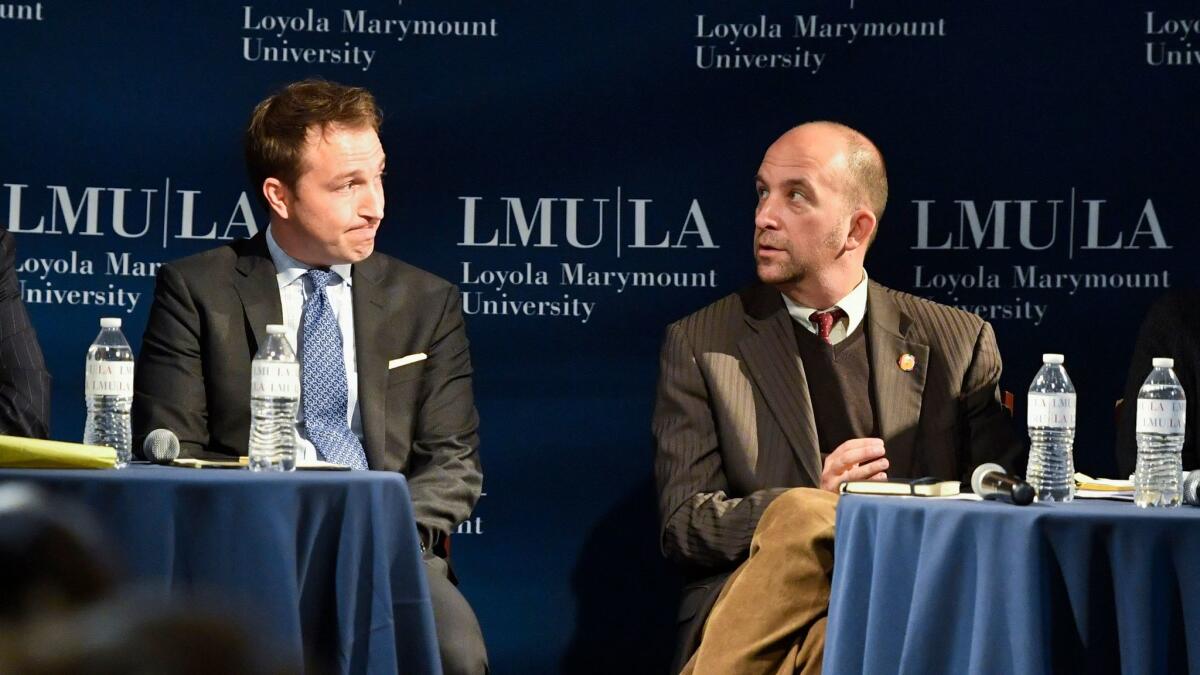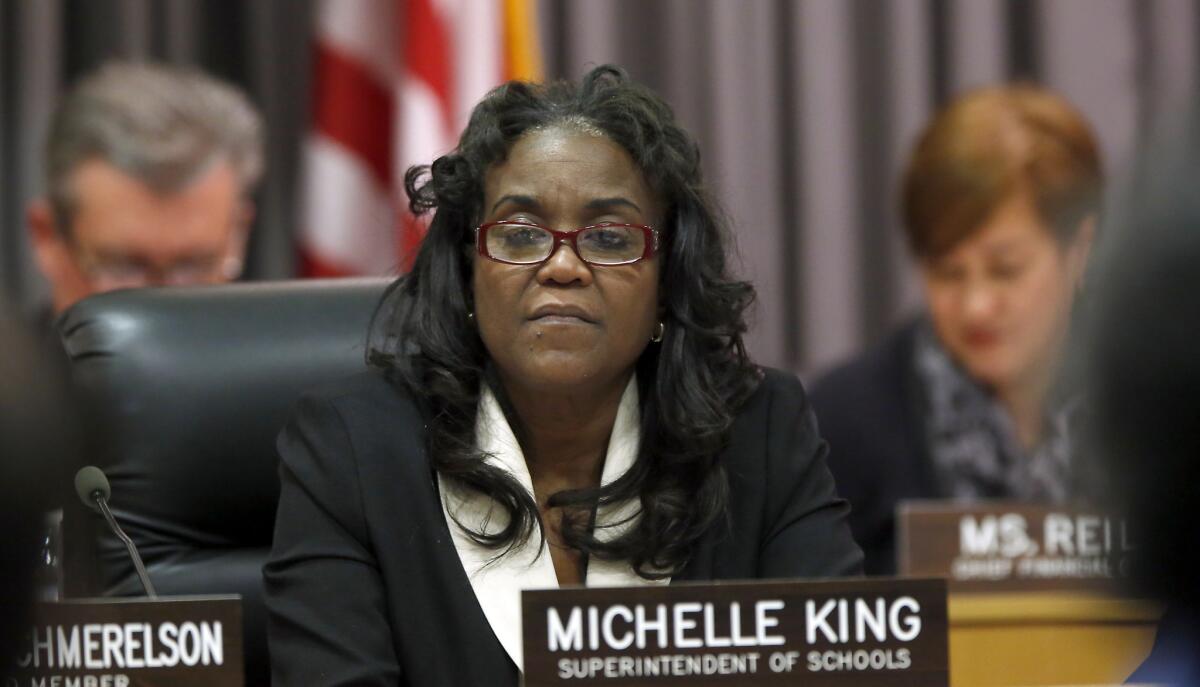Major changes could come to L.A. schools after charter school movement’s big win

- Share via
Supporters of charter schools appeared to win control of the Los Angeles school board Tuesday, a watershed moment with huge implications for how students are taught in America’s second-largest school district.
The charter school movement has long been a major force in Los Angeles school circles. But the victory Tuesday night by pro-charter forces — who dramatically outspent rivals in what was the most expensive election in school board history — gives them the opportunity to reshape the district.
The election marks a defeat for teacher union forces, who have long been a power center in L.A. school politics. With their new majority, charter school backers can press their campaign to expand such schools across the city. Charter forces have long been critical of how the LAUSD is run. Now they will have to show they can steer the massive, often frustrating, bureaucracy better.
Some key takeaways:

1) More charter schools for L.A.?
L.A. Unified has more charters and more charter students than any other school system, but they still account for only about 16% of enrollment. With a majority on the board, charter forces could significantly increase those numbers.
Easier to open more charter schools: A charter-majority school board would most likely put up less resistance to new charter schools and could make it easier for existing charters to have their five-year operating agreements renewed. Charters also could get increased access to district-owned classrooms and to school construction money controlled by L.A. Unified.
Charter supporters say these schools offer high-quality choices to parents whose neighborhood campuses are plagued by low student achievement and other problems. Charters have proved popular with many parents and some have waiting lists.
Charter critics question the claims of success and assert that the loss of students (and the funding that comes with them) imperils the ability of the district to offer full services to parents of children in traditional schools, including those with moderate to severe disabilities.
Big push for more charters: This debate comes at a critical time.
Charter backers, including philanthropist
They later said that plan, which was disclosed by The Times, had been just a draft for discussion purposes. Still, more of the pieces now are in place for rapid charter expansion.

2) Big questions looming for future of LAUSD
With faster charter growth, L.A. Unified would find itself under increasing financial strain, because of such enormous fixed costs as lawsuit settlements, building maintenance, pension debt and retiree health benefits.
District officials said they are worried about maintaining programs, including those for students who are more expensive to educate, such as those with moderate to severe disabilities or serious behavioral issues.
District financial pressures: A panel in 2015 offered a grim view of LAUSD’s financial health, predicting budget deficits that could grow worse with time.
Other financial challenges include rising healthcare costs and much higher pension contributions that are required by state law.
Declining enrollment, meanwhile, is driving down revenue; the district’s number of employees has, so far, not matched that decline. About half of the decline results from the growth of charter schools.
Defeated board member Steve Zimmer had become a leader on the current board, sometimes seeming like a shadow superintendent in his close collaboration with current Superintendent Michelle King and her predecessor, Ramon C. Cortines. With them, he had pushed hard to build on popular options for parents within the district, such as magnet schools and programs that achieve full foreign-language fluency.
3) Money talked, and teachers union lost
Teachers unions have long been a dominant force in school politics. But this time, charter forces significantly outspent the unions. Campaign spending was expected to top $15 million, making this the most expensive school board election ever.
Big spending by charter forces: Netflix Chief Executive Reed Hastings, a longtime charter school backer, was particularly active, donating about $5 million since last September to California Charter Schools Assn. Advocates, which coordinated much of the pro-charter spending. Hastings is a Democrat and represents the wing of that party that is strongly pro-charter.
Other big donors to the pro-charter side were familiar names in Republican circles as well as conservative and anti-union causes. These backers have broad ideological overlap with the Trump administration and Education Secretary Betsy DeVos.
Less union clout: By some measures, the political clout of the teachers’ union has been declining in recent years.
UTLA membership stood at about 32,000 members last year— down from 45,000 in 2008. UTLA’s revenues have also been dropping. Last year, union leaders sought an increase in dues in part to boost their fight against charter schools.

4) Will Michelle King survive?
Supt. Michelle King took office about 14 months ago. New boards frequently want to pick new leadership because the ultimate job of a board is to select and evaluate the superintendent.
One of King’s key aims is to increase enrollment to confront a looming budget crisis, which means competing with charter schools for students. To do this, she plans to launch an online enrollment system, which would help parents discover, find and apply for varied L.A. Unified programs. At present, there are no plans to include charters in that “unified” system.
It isn’t clear that charters want to be part of it, but they do want faster and more complete access to district-owned campuses. And they’d like a larger share of school-construction bonds that are under L.A. Unified control.
ALSO
Charter-backed candidates win L.A. Unified board races, claim first majority
UC regents to tackle hot-button issues of state audit and nonresident enrollment
Sign up for Essential California
The most important California stories and recommendations in your inbox every morning.
You may occasionally receive promotional content from the Los Angeles Times.








